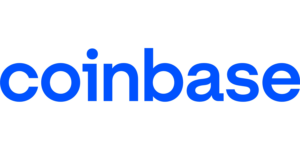The financial technology market is expected to grow at a CAGR of 17.6% until 2029, making it a sector investors should consider. However, like any high-return opportunity, investing in fintech companies carries significant risk. To mitigate those risks, it is important to stay informed and keep an open mind about the general consensus regarding investments.
Knowing when to sell is just as important as knowing when to buy. That said, here are three companies that I believe you should offload for now.
Block (SQ)

Block (NYSE:SQ) is a company that offers financial solutions to consumers and businesses. It operates Square and CashApp, both of which are leading payment interfaces. While it operates primarily in the United States, it also provides its services internationally.
While SQ’s revenue is increasing significantly, profit isn’t keeping pace. Although the company posted a year-over-year quarterly revenue growth of 11.2%, it only had a profit margin of 2.9%. In addition to a return on assets of 1.12%, both metrics are significantly lower than those of its competitors. Insiders only own 0.8% of SQ’s shares. The percentage is quite low relative to other companies and is a negative indicator.
The company is reportedly reorganizing soon. This will prove to be a big shift for employees, as layoffs are also part of the plan. The long-term impact of these moves creates uncertainty for Block, with their full effect yet to be priced in. For now, investors should be weary and might want to consider selling portions of their investments.
Affirm (AFRM)

Affirm (NASDAQ:AFRM) operates primarily as a digital sales facilitator and has point-of-sale terminals. However, one of its most notable features is that it allows consumers to spread payments out €” if you’ve ever shopped on Amazon (NASDAQ:AMZN), you’ve likely noticed a “Pay with Affirm” pop-up on your screen. It trades at $24.16, representing a market cap below $7.5 billion.
While revenue has been on a progressive uptrend over the last four years, it is important to note that losses have been, too. Additionally, the company currently has a debt/equity ratio of 20.89. The company is operating on significant leverage, which could be a big risk in the long run. Additionally, analysts have lowered EPS predictions recently.
AFRM faces multiple threats. From a point-of-sales standpoint, there are numerous competing services. Apple Pay is a big contender. AFRM also faces stiff competition in the buy now sell later space, with companies like Apple (NASDAQ:AAPL) allegedly coming out with improvements to Apple Pay Later. PayPal (NASDAQ:PYPL) also offers a pay-later service. Due to this, I think that AFRM will face significant challenges in the future and is a stock you should sell.
Coinbase Global (COIN)

Coinbase Global (NASDAQ:COIN) is one of the most recognizable crypto exchanges. For readers unfamiliar with the concept of a crypto exchange, think about where you invest your money €” just like your broker, crypto exchanges facilitate cryptocurrency trading. As of the market close on 8/6, COIN is trading for $194.17, giving it a slightly over $48 billion valuation.
While the company is experiencing solid growth, with revenue surging over 100% in Q2, profits remain nonexistent. The company only barely made a profit in fiscal year 2023. With a beta of 3.4, this company remains a volatile investment. COIN also significantly missed Q2 EPS estimates by $0.79.
This brings me to my main point €”the revenue COIN collects directly affects crypto prices, particularly those of more popular coins such as Bitcoin (BTC). This is because it collects revenue on each transaction made on a percentage basis, and thus, generally, if the price of crypto is higher, it will collect more revenue. This represents a significant risk for investors, and thus, any investors who don’t accept this should consider selling.
On the date of publication, Matthew Rodrigues did not hold (either directly or indirectly) any positions in the securities mentioned in this article. The opinions expressed in this article are those of the writer, subject to the InvestorPlace.com Publishing Guidelines.
On the date of publication, the responsible editor did not have (either directly or indirectly) any positions in the securities mentioned in this article.
Matthew Rodrigues is a college student studying Business at UC Berkeley Haas. He believes detailed research and correct interpretation of current events is what leads to investment success.
